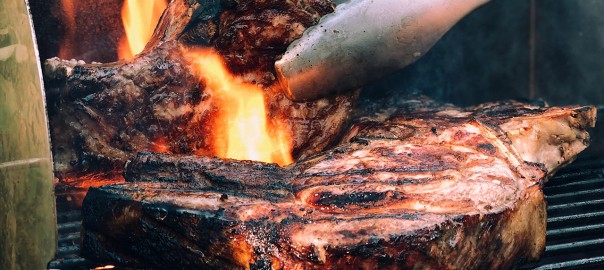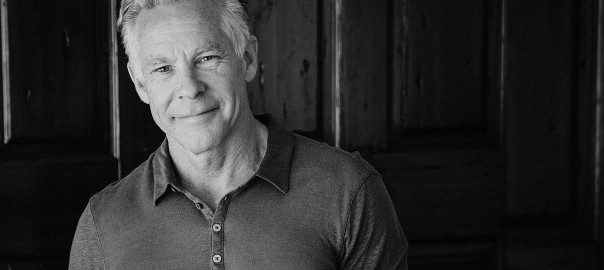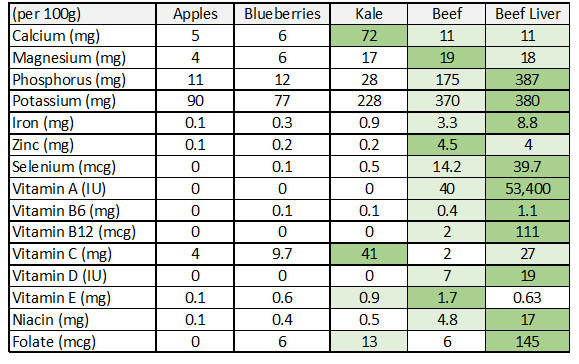Imagine a diet consisting of meat and potatoes, sans the potatoes.
While some of you are probably thinking, “Sign me up!” others are left wondering, “…You call this a diet?”
The Carnivore Diet is exactly what the name implies — a diet consisting of only meat; no vegetables, fruit, nuts, or any other plant foods. While it’s gained quite a bit of attention this past year, scientific research to support its health benefits is still limited. Those who follow it swear by it, claiming it leads to weight loss and a host of other health benefits.
The Carnivore Diet: What is it?
Picture what a true carnivore’s diet entails, and you have the answer to your question. A carnivore diet for humans means meal after meal consisting entirely of meat and animal products. No plant matter whatsoever.
Yes, you read that correctly. Enjoy all the ribeye steaks and bacon you want, but anything grown—not raised—from the ground is off-limits.
While a salad-free diet might sound enticing to some, others wonder how it could possibly provide the vitamins, minerals, and other nutrients that humans need to grow and thrive.
The Carnivore Diet was relatively unheard of until late last year (there was a 10X spike in searches for the diet from October through December). Shawn Baker, an orthopedic surgeon and world record holder in master’s rowing, gained quite a bit of attention for his zero-carb way of life. Baker followed a strict, carnivore meal plan (mostly red meat) for an entire year. As a result, his strength and performance in the gym soared.
Often confused with Keto and other low-carb diets, the Carnivore Diet is distinct because it only contains animal products:
- Meat (mostly red meat)
- Fish
- Eggs
- Cheese
- Other animal-derived products (butter, organ meats, bone broth)
The philosophy behind the Carnivore Diet states that humans need only protein, vitamins, and minerals to survive. However, those last two—vitamins and minerals—can actually come from animal sources (more on this later).
The benefits of a zero-carb diet
So what are the health benefits of an all-meat, no-plants lifestyle? Following a strict carnivore meal plan cuts out all unnecessary sugar and carbs. Though scientists told us for decades that saturated fats were linked to heart disease and other ailments, new studies show that other foods might bear some responsibility.
Similar studies show that low-carb diets lead to faster, more-prolonged weight loss than low-fat diets. Contradicting studies from the ‘70s, low-carb diets actually help lower cholesterol which can improve heart health.
When eating only meat, individuals report increased strength and muscle mass. This is usually credited to the unsurpassable protein intake — often topping 200 grams in a single day.
It’s not just about the sheer quantity of protein, either. Meat and eggs are considered “complete proteins,” containing all nine essential amino acids. While there are twenty amino acids available for consumption, “essential” refers to those the human body can’t produce on its own. Plant-based protein sources like lentils and nuts contain a few, you’ll only find all nine within carnivorous sources.
“But what about fiber, vitamins, and minerals?!” you ask. A carnivore diet contains much more than we’re led to believe. Red meat, in particular, contains B vitamins, vitamin D, iron, zinc, and other minerals. Chicken and other types of poultry contain high amounts of phosphorus, choline, and B vitamins.
Results of the Carnivore Diet
Many individuals transitioning to the zero-carb approach started with a more moderate, low-carb diet — think Keto or Paleo. After experiencing decreased inflammation, better cognition, and a slick digestive system (yes, we went there); they thought, “Why not take it one step further?”
At Meat Heals—a site Dr. Baker references frequently on social media—individuals share their personal stories and successes after switching to a carnivore meal plan. Eating an all-meat diet has people raving about their results, including fat loss, top-notch blood work, and improved symptoms related to a variety of diseases.
One woman claims following the Carnivore Diet helped cure her constipation, as well as bloating, water retention, and skin issues. Another man reports eating a diet of all animals and no plants completely cleared his acne (a constant issue, even at thirty years of age). One jaw-dropping story—126 pounds down in six months—by a man who saw little success with a ketogenic diet, states he no longer needs his diabetes medication.
Is the Carnivore Diet just another name for Keto?
All carnivore diets are ketogenic by nature, but not all keto diets qualify as the Carnivore Diet. Make sense?
An individual following a strict, carnivore diet plan would—undoubtedly—enter ketosis. Both Keto and the Carnivore Diet include meat, eggs, fish, and small amounts of dairy. Followers of both diets report on the seemingly limitless physical and mental health benefits. The similarities, however, appear to end there.
Keto follows a low-carb (but not a zero-carb) approach. Iron Man competitor Ben Greenfield claims to eat 100-150 grams of carbs—even 200g on a high-mileage day—and stays in ketosis. Keto also encourages the consumption of low-carb plants, such as leafy greens and other vegetables (fruits, due to their high sugar content, are typically avoided). Plant-based protein sources and cooking fats such as coconut oil, brazil nuts, and coconut milk are highly encouraged.
So….Is it right for you?
That’s for you to decide. You certainly won’t see some of us giving up our avocados and kale anytime soon.
When switching to any diet, it all depends on how you feel. Many individuals report unprecedented health benefits when transitioning to Paleo, while others had to take it one step further—say AIP or Keto—to experience the full benefits.
Almost any diet can be beneficial, just as any diet can be detrimental. Take the popular gluten-free diet, which so many people swear by as a solution to health issues ranging from pain and inflammation to hyperactivity and concentration problems. Despite the potential health benefits of a gluten-free diet, not all gluten-free foods are healthy and there are plenty of gluten-free items on the grocery shelf that don’t belong in our carts (like cheese puffs, for instance).
It boils down to this: The quality of your food choices matters. Particularly if you’re limiting your plate to only one-or-two food groups, then ensure you’re maximizing the nutrients you get from those foods. If you decide to opt for an all-meat diet, then ensure the cuts of meat you consume are of the utmost quality. Grass-fed meats and pasture-raised eggs will take you further than their lower quality equivalents. Plus, unlike other carnivores, your dinner can be delivered right to your doorstep.
What about you? What are your thoughts on the Carnivore Diet?
Would you ever try eating all animals, no plants, for thirty days or more? Do you know anyone who’s tried it? Let us know in the comments.









